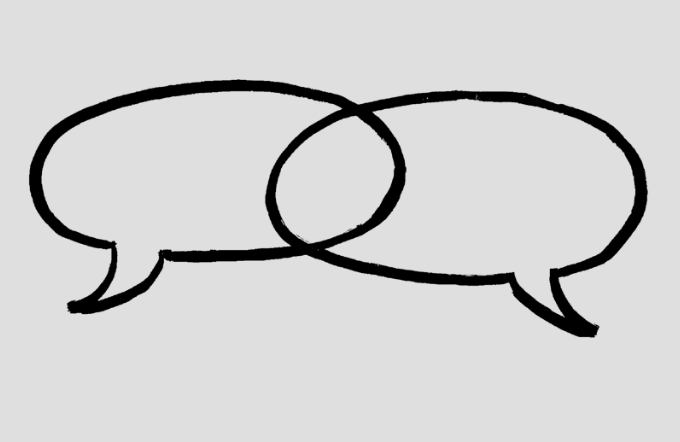
Image by Ivy Sanders Schneider

Image by Ivy Sanders Schneider
“What’s going on in contemporary fiction?” There’s no arguing with a question like that, it forces narrative. Something must be happening. The only way to answer it is to tell a story about thousands of stories based on the few you’ve managed to read.
These days, there’s little overlap between what I and whomever I’m talking to are reading. I get all thrilled when it does happen, usually engineered through mutual recommendations, but most of the “talking” I do about books is in my own criticism. Most tips on what to read next I get from other people’s criticism, books I’m already reading, and random notions that I should read another book by that person whose writing I once liked. If the book is more than a decade old and someone is still talking about it, then the likelihood of finding an actual person to talk to about it increases significantly, I’ve found. Whereas conversations about contemporary fiction regularly devolve into list-making, a couple people rattling off completely different titles, like taking measured paces away from one another in preparation for a duel that will never be fought. Not ideal, but if litigating Sally Rooney’s novels in perpetuity is the popular alternative, I’ll take it.
Of course, there are forces mightier than bar chatter that make it feel awkward or artificial to point at a thing going on in contemporary fiction and deem it “the action.” There’s so much out there to read, you can feel the weight of it. This glut is enabled in part by appalling developments like the cheapening of literary labor and the rise of Amazon. Yet there are considerable upsides, too, like lots of people having their fiction published, and lots of people wanting to read it. We can’t pay attention to all these books — some of them are really bad — but suspicion of well-trodden ground and curiosity about the unheralded seems advisable. A wide range of novels don’t always get paid careful critical attention, despite the aforementioned glut, and uttering a title in public or placing it on a clickbait list of hot-shit new releases does not a moment make.
So what’s been going on lately, at least from this reader’s vantage point? Autofiction and climate fiction didn’t constitute some break with how novels are written and read, but they did play with expectations. While they frolicked, many other forms woke up. Darryl, by Jackie Ess, is a torrid sex comedy ripped from the pages of Dennis Cooper’s The Sluts, but with its own particular kinks. Alexandra Kleeman’s Something New Under the Sun is an absurdly poised Stoppardian noir. With The Lying Life of Adults, Elena Ferrante reclaimed the child prodigy monologue for teens who are bad at school but good at digging up dirt on their family members.
If there’s one snag I most reliably hit in the contemporary literature I choose or am assigned to read, it’s an annoying preoccupation with knowing or not knowing, with the State of Knowledge. The narrator frets about not knowing what to think for three hundred pages, or has reconciled herself to a state of futility, or drowns the page in sarcasm. Some characters find themselves in very modern situations involving abuses of technology, possibly a cult, and various clever observations ensue. These antics are flashy enough to grab a reader’s attention momentarily, but less engrossing than, for instance, a plot in which a character suffers a believable lapse in judgment.
Perhaps this sort of writing is reacting against something, or many things: the whimsy of autofiction, the pieties of liberalism, the mania of mass right-wing politics and corporate America. It might just as possibly be in service to something: apathy-inducing social media algorithms, a critical culture that can be shaming (or not shaming enough, depending whom you talk to), or all the social and market forces that don’t permit the time it takes to nourish a fiction writing practice.
Novels can of course think out loud in the first person without being distractingly self-conscious about it. The third person can uphold the high stakes of social drama without collapsing into didacticism, solipsism, or pure canard. There are moments in some recent novels so absorbing you can’t grasp how their authors did it, a strange world was just flooded with light. It’s not inevitable, but it happens every day.
Hannah Gold is a critic and fiction writer based in New York City. Her most recent work has been published by Harper’s, The New Yorker, The New York Review of Books, and The Washington Post.